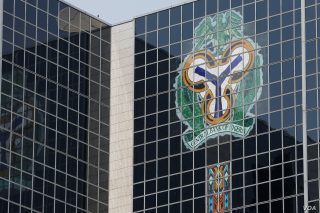The Central Bank of Nigeria (CBN) issued a notice proposal on Friday, February 7, 2020, titled “Recycling of Paper Banknote Wastes.” which seeks to venture into a more environmentally sustainable means of destroying bad naira notes.
On a weekly basis, CBN revealed that about 100 tonnes of bad banknotes are generated as waste and destroyed through open-air burning at its 12 disposal centres across the country. This method of banknote disposal has several negative impacts on the environment like emitting gases that deplete the environments thereby causing health hazards.
In identifying a more sustainable method to dispose of banknote waste, CBN opted for recycling because the process allows for waste to be turned into useful products that will enhance economic activities in the country. Subsequently, this effort reiterates CBN’s attempt to align with the attainment of a low carbon economy by 2030.
Although the destruction of unfit banknotes in Nigeria is solely carried out by the CBN as seen in Section 18(d) of the CBN Act 2007, the apex bank has commenced the process of collaborating with private firms to recycle bad naira notes instead of open-air burning.
The notice is, therefore, seeking proposals from accredited recycling companies interested in utilizing paper banknote wastes in its recycling process. The purpose of this Request for Proposal (RFP) is to solicit competitive proposals from reputable companies that can recycle CBN banknote wastes into useable products that can be beneficial to the nation. As well as adhering to Health Safety and Environment (HSE) standards and other mandatory requirements listed on the notice.
This is however not the first time Nigeria’s apex bank is investing in the recycling of its banknotes. Last October, CBN set aside a total sum of N500 million for the recycling of old banknotes and other hazardous electronic materials that constitute environmental hazards.
Similarly, other countries across the globe have opted for recycling rather than the open-air burning of their currencies. In 2011, the United Kingdom started recycling its banknotes and used them as a soil improver for its agriculture. Also, the new plastic and polymer notes were turned into tiny little pellets before being transformed into new plastic items like plant pots.
In addition, 90 percent of discarded bills are given to power plants to be burned as fuel, some are turned into fertilizers while others end up as manufactured goods in the United States. Also, recycling companies in the U.S. such as United Fibers LLC use shredded dollars to make cellulose insulation for houses.
Nigeria’s central bank is therefore on the right path not only to reduce its carbon footprint but allow for its waste to be incorporated into other useful products in the country. Interested recycling companies who would like to partner with the apex bank should have their submission sent out to the CBN Head Office complex in Abuja not later than 12:00 noon on 11th March 2020.








